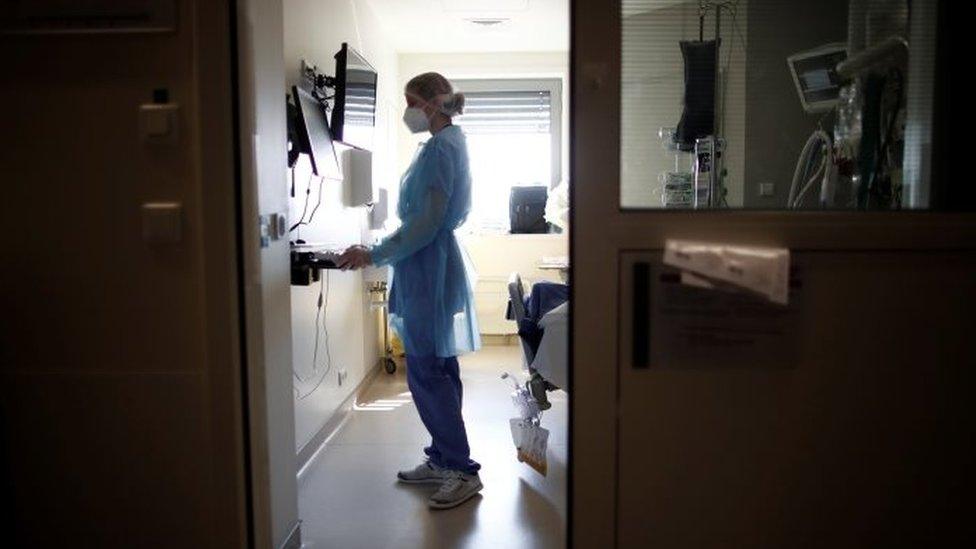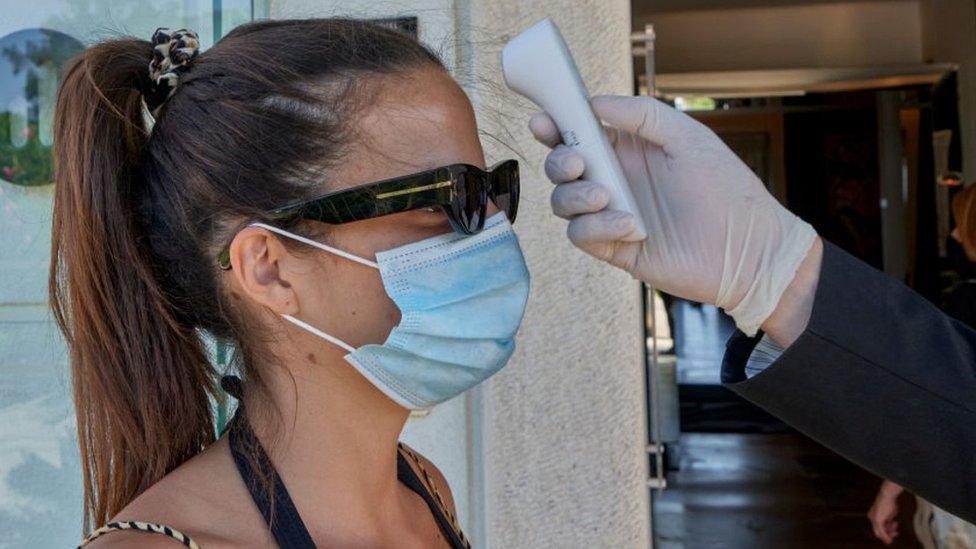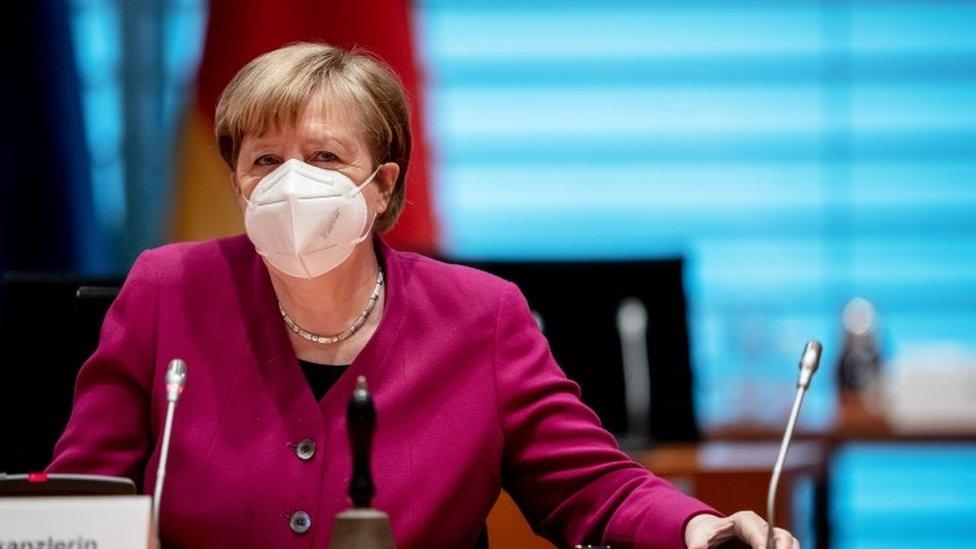France coronavirus: Paris cuts non-Covid treatment amid intensive care surge
- Published

The ICU unit at the Melun-Senart hospital near Paris. The situation in the region is "very tense"
Hospitals in and around Paris have been told to reduce non-Covid treatments by 40%, as demand for intensive care beds (ICU) neared saturation point.
On Monday take up of ICU beds for Covid patients was just 83 short of the 1,050 capacity set aside for the region.
France has tried to speed up its slow vaccination campaign but remains dogged by high infection rates.
It has tried to avoid major lockdowns and its health director said on Tuesday one in Paris would be a "last resort".
Jérôme Salomon told RTL radio on Tuesday this was "not on the agenda" but that the situation was being monitored "day by day".
What is the situation in Paris?
The head of the regional health authority in the Île de France, or greater Paris, region - France's most populous at 12 million - said on Monday that it was "very tense".
Aurélien Rousseau said "we needed to react very fast" in giving "a firm and immediate order" to cancel 40% of scheduled non-Covid hospital care.
This followed a net increase into intensive care of 35 patients per day over the past two weeks.
The latest move would boost intensive care bed capacity to 1,577 by next week.
Mr Salomon on Tuesday admitted the situation was tense, but that beds were being freed up.
He added: "Lockdown is a last resort measure that would be submitted to the government and the president if we were under the impression the hospital system could not cope."
How is France coping with Covid?
The number of patients in ICU beds reached a 14-week high on Monday, at 3,849, the AFP news agency reports.
The number of infections has remained stubbornly high. Monday's seven-day rolling average of 21,270 daily cases has changed little since mid-January.
The government has tried to tackle criticism over a slow rollout of vaccinations. Prime Minister Jean Castex has urged a "national mobilisation" and vaccination centres remained open last weekend.
Covid symptoms: What are they and how long should I self-isolate for?
Vaccine deliveries to France are scheduled to pass two million doses within two weeks, Industry Minister Agnes Pannier-Runacher said, with some 30 million people being offered vaccinations by the end of June.
Reflecting the need to boost inoculations, MP Loïc Dombreval suggested animal veterinarians should be asked to help out with the drive.
Currently France still lags well behind the UK, with only 8.4% of the population receiving a first dose, compared to 34% in Britain.
Lockdowns have largely been limited to weekends in regions that require them.
Separately on Tuesday, France's Academy of Medicine said it was "ethically unacceptable" for caregivers to refuse vaccinations and backed compulsory injections - an issue that causes deep divisions in France.
And the country's central bank chief, Francois Villeroy de Galhau, said on Tuesday the "recession is behind us" and that France would achieve economic growth in 2021 of at least 5% - which he said would be above average for Europe.
What is happening across Europe?
Italy on Monday passed the 100,000 mark for Covid-related deaths, the seventh country to do so. Italy fears a fresh surge - infections rose 23% last week compared to the previous week. PM Mario Draghi vowed to "significantly step up" its vaccination campaign
Russia's Sputnik V vaccine could be produced in Italy after a deal with a Swiss-based firm. Italy would have to approve it. The European Medicines Agency, which approves for the EU, has yet to do so, sparking accusations of bias from its developers
Belgium on Monday extended its blanket travel ban to 18 April. The European Commission, which has argued such bans contradict freedom of movement principles, called the move "surprising"


- Published6 March 2021

- Published4 March 2021
